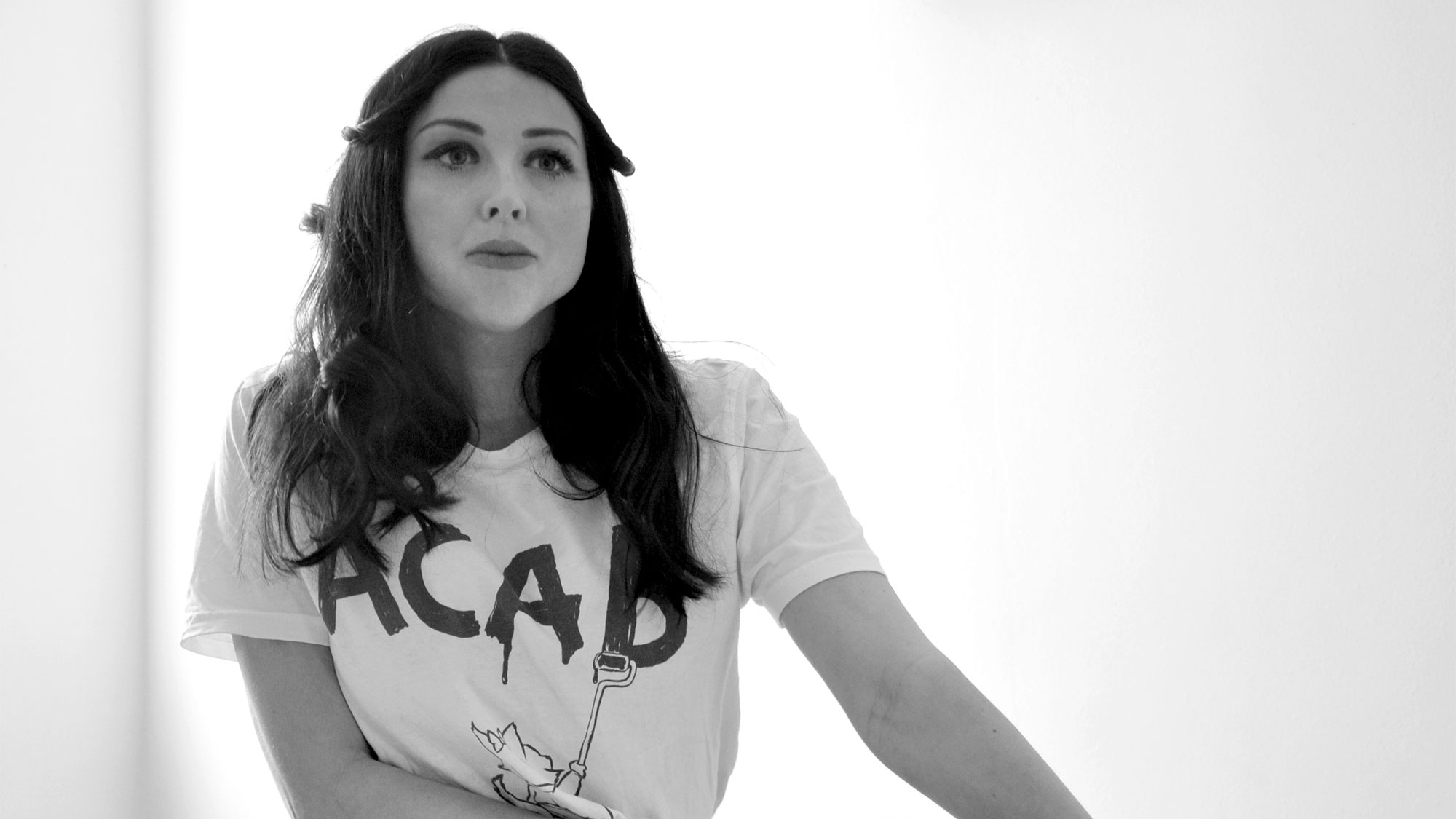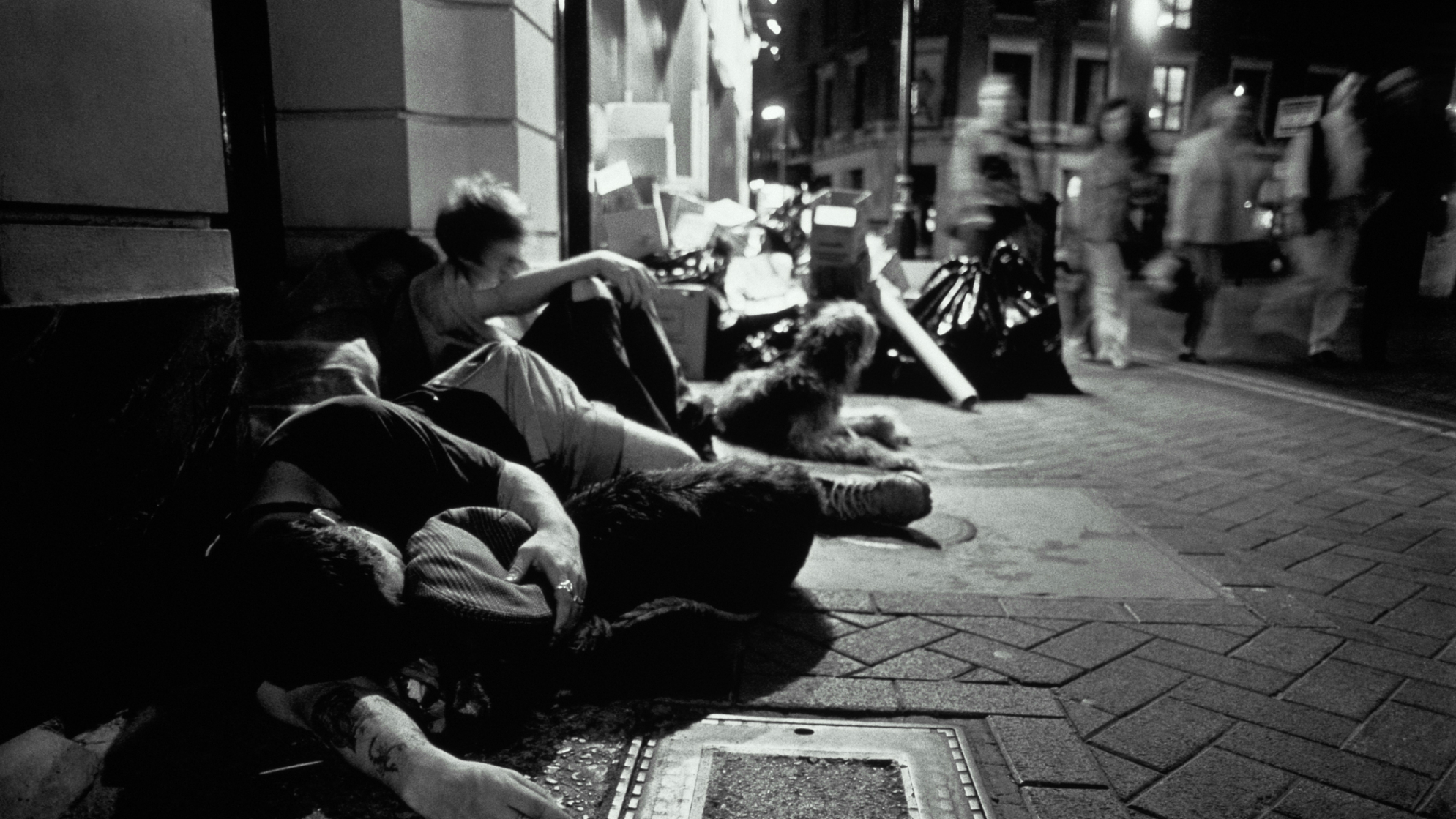Priced out: High rents, benefits stigma and the hidden homeless
For a woman sleeping rough, life expectancy is 42, compared to an average of 81. Now with charities warning fatalities are set to be even higher in 2019, author Cash Carraway reveals what she endured and questions what action needs to be taken to remedy a system that allows lives to be lost…

Celebrity news, beauty, fashion advice, and fascinating features, delivered straight to your inbox!
You are now subscribed
Your newsletter sign-up was successful
For a woman sleeping rough, life expectancy is 42, compared to an average of 81. Now with charities warning fatalities are set to be even higher in 2019, author Cash Carraway reveals what she endured and questions what action needs to be taken to remedy a system that allows lives to be lost…
Words by Cash Carraway
‘Are we a better homeless than the men in the doorway, Mummy?’ My daughter whispered as we slammed the front door shut behind a group of faceless men in damp stinking sleeping bags. ‘Because they use cardboard boxes to sleep in, but we use them to move our stuff to the next place. Does that make us better homeless?’
That was back in 2017 and I didn’t have an answer for her. My main focus was finding us a stable home and it hadn’t occurred to me to view homelessness on a sliding scale from better to worse until my eight-year-old questioned it. After all, just like the men sleeping on the steps we too were part of a statistic that placed us firmly inside the UK’s estimated 320,000 homeless.*
We were known as ‘hidden homeless’ - a term given to those in priority need of housing (parents of children under 16, pregnant or those fleeing violence) who are deemed in need enough to be allocated rooms in hostels, refuges and temporary accommodation. ‘Hidden’ because our definition of homelessness keeps us off the streets and living what could be mistaken for as a typical existence.
However, those who fall outside of those narrow parameters of ‘priority need’ are condemned by councils as intentionally homeless and refused accommodation; branded solely responsible for their situation they become targets to the bullets of blame culture and forced to live in exile on the streets, going from a person who is desperately seeking help to being led to a doorway and labelled vagrant, spice boy and tramp. Looking down from our room in the homeless hostel it became clear to me that even though we were only one step above the streets we were also a million miles away; if we were the hidden homeless then the approximately 5,000 rough sleepers throughout England and Wales were completely invisible.
The UK is in the midst of a homelessness crisis. Austerity politics combined with the catastrophic introduction of Universal Credit and lack of affordable housing has plunged many working families into poverty resulting in a record rise in homelessness. According to figures from the Office for National Statistics (ONS) released in September, 726 homeless people died in England and Wales in 2018 – 2 deaths a day - a rise of 22% from 2017 which sees the biggest increase in deaths since data was first collected in 2013 and with no end sight to the 2016 benefits freeze they warn that fatalities are likely to be even higher in 2019.
Celebrity news, beauty, fashion advice, and fascinating features, delivered straight to your inbox!

My route to homelessness is a similar tale to thousands of other women experiencing poverty in the UK and has its roots firmly attached to the 2013 benefits cap; high rents and zero-hours/minimum wage means you are only ever one relationship breakdown, dropped shift, or delayed Universal Credit payment away from losing your home.
New research recently published by the Bureau of Investigation Journalism reports that families on housing benefit are being priced out of almost all homes in the UK with 94% of privately rented homes too expensive for those in receipt of housing benefit, and with no government plans to implement rent caps or replenish the social housing stock sold to private landlords under Right to Buy, these deaths driven by austerity are set to rise in the coming year.
In the month before we moved into the hostel I approached over 80 estate agents and slumlords (those who rent out sheds, garages, cupboards and derelict properties) in an attempt to secure us an affordable private rental but most landlords wouldn’t even let me view the property knowing that I was in receipt of housing benefit. Eventually one agreed to rent to me if I paid a two-month deposit plus six months’ rent in advance. Who in low paid employment and in receipt of housing benefit has a spare £10,000 (approx. rent for a 2 bed flat in London is £1,300pcm) available in order to rent a property? It’s a system that sets up low income and vulnerable people to fail and is comparable to the discriminatory “No Dogs, No Blacks, No Irish” landlord criteria of the 1950’s - the modern equivalent being “No pets/No DSS” which translates: If you’re poor you do not deserve housing.
We need more affordable housing, rent caps and regulated landlords who put dignity before profit. Austerity thrives on seeing those who struggle as feckless and undeserving instead of being real people trapped in a system where they are purposefully set up to fail. Shows like Benefits Street and the endless slew of TV poverty porn has set a mob mentality tone that gives society permission to other those most in need. We need to see the individuals behind the statistics if we are ever going to overcome this shameful crisis.
My daughter and I spent just over a year officially classified as homeless and her observation was correct: We did fall onto ‘better’ side of homelessness. With a roof over our heads we could start to piece our lives back together and eventually we filled our cardboard boxes and moved into a secure home. But what about those anonymous men on the hostel steps? I often wonder how many of them are already dead.
Skint Estate by Cash Carraway is out now, published by Ebury Press.
* According to the latest research by housing charity Shelter (Nov 2018)
The leading destination for fashion, beauty, shopping and finger-on-the-pulse views on the latest issues. Marie Claire's travel content helps you delight in discovering new destinations around the globe, offering a unique – and sometimes unchartered – travel experience. From new hotel openings to the destinations tipped to take over our travel calendars, this iconic name has it covered.